- Home
- Herbert Strang
Frank Forester: A Story of the Dardanelles Page 9
Frank Forester: A Story of the Dardanelles Read online
Page 9
CHAPTER IX
A REHEARSAL
It was two days later.
On the slope of the hill, not a stone's throw from the house whereHermann Wonckhaus was nursing his wounded leg and meditating on carpets,was a modest dwelling, huddled among more pretentious buildings, and soinconspicuous that a passer would hardly have thought it worth while towonder who lived there. At the rear of this house, hollowed out of thehillside, was a small dark chamber with neither door nor window. Anyperson who might have been brought there in a state of unconsciousnesswould have supposed, on waking, that he was sealed up within four wallsfrom which he could not escape.
On this particular day three men were in the room, one elderly, theothers young. A small oil lamp placed on a wall bracket gave a dimlight, and the air was oppressive with staleness and the flavour ofsmoke. It was not a place where one would have desired to remain long,but its three occupants had chosen it as the scene of a somewhatimportant rehearsal.
The elderly man was Isaac Kopri, the astute and capable Armeniancontractor to the Turkish army in Erzerum. One of the youths was hisson Joseph. The second was to all appearance one of those humbleArmenians who are employed in driving caravan horses from the Persianfrontier to Erzerum and thence to the Black Sea port of Trebizond. Hestood at one end of the room, facing his companions at the wallopposite.
Kopri stepped forward, and, speaking in Turkish, asked sharply:
"Who are you?"
"I am your servant, effendim," replied the young man, "Reuben Donessa,the son of Aaron of the Five Wells."
"Where do you come from?"
"From Bashkala, effendim."
"How old are you?"
"Truly I know not, effendim, but my years may be nineteen or twenty."
"Why are you not in the army?"
"Because it is the will of Allah and the noble governor that I should bedispensed from the war service of the Illustrious."
"Where is your paper?"
"Behold it, effendim."
He took from the breast of his shaggy tunic a dirty crumpled paper,which Kopri took and read aloud. It set forth the style and titles ofthe Sultan, then those of his deputy the governor of Erzerum, andfinally declared: "Certifies that the bearer, Reuben Donessa, isemployed in the service of Isaac Kopri, contractor to the army of theCommander of the Faithful."
"Isaac Kopri should employ older men, but your paper is in order. Youmay go."
"Peace be with you, effendim."
"Very good, very good," said Kopri, handing back the paper. "But youmust pitch your voice a little higher. Joseph, say 'I am your humbleservant, effendim.'"
Joseph repeated the words.
"That is the tone, mark you," said his father. "Now we will go throughit again."
The dialogue was repeated, the driver, who seemed somewhat amused at thegravity of the others, imitating Joseph's reedy intonation.
"That is better," said Kopri at its conclusion. "But remember,effendim, tone and accent are not everything. You must bow, and standhumbly, and cast down your eyes, not look forthright into the eyes ofyour questioner when you answer him. We Armenians have been oppressedfor five hundred years. We move meekly on the face of the earth. YouEnglishmen bear yourselves differently. You walk and stand as if youwere the lords of the world. If you would pass for an Armenian you mustremember that in the eyes of the Turk you are less than the smallestgrain of dust. Keep that in mind, and all will be well."
Frank smiled as he made a humble salam.
"How will that do?" he asked.
"Very good, very good--with a little more crook in the knees. And now Iwill explain my plan."
Frank had been rescued by Joseph with the help of Ali, the faithfulKurd, and brought to this secret chamber in the obscure house, fromwhich it was entered by a passage beneath the floor. His escape hadraised a commotion in the town. Search had been made for him in alldirections until Kopri started a rumour that he had bribed Kurds to passhim through Kurdistan into Persia. Wonckhaus was furious, and hadpromised a high reward to any one who captured the fugitive.
When Joseph was released, in the early days of Frank's imprisonment, hisfather thought it politic that he should leave the town, and had takenhim away on one of his business journeys into the country. Then, fearingthat the Armenians were about to suffer in one of the wholesalemassacres which break forth in times of disturbance, Kopri had sent allhis family to Constantinople, where they would be for a time, at least,safer than in Erzerum, and whence they might in case of need slip acrossthe frontier into Bulgaria or Greece. He himself had the protection ofthe military authorities, but this might fail him at any moment; indeed,he had already been forced to part with some of his profits in the wayof war contributions.
Having thus disposed of his family, Kopri was now intending to jointhem. The Turkish army in the Caucasus was hard pressed by theRussians, and in great need of supplies. With the ostensible purpose offetching provisions, Kopri was arranging to take a large number of mulesto Trebizond, to await his return from Constantinople. Most of the muleswere already on the road. He would follow at the tail end of thecaravan, which was in charge of a few specially trusty men, and his planwas that Frank and Joseph should slip out of the city by night, and joinhim at Ilija, a village at the foot of the hills to the west.
Kopri was well aware of the risks he was running in assisting theEnglishman's escape. But Mr. Forester was an old friend of his, andlearning in Constantinople that the merchant, on his return there, hadbeen greatly distressed at being unable to communicate with his son, hehad willingly yielded to Joseph's entreaty that they should attempt torescue Frank. He remembered also how Frank had run risks in defendinghis house from the mob. Mr. Forester had of course left Constantinoplewith other British residents at the outbreak of war, but he had leftword that he should not travel farther than Malta, where he would remainuntil he had news of Frank.
The arrangements having been thoroughly discussed, Kopri left the house,where his son was to stay with Frank until nightfall. As soon as it wasdark, the two slipped out, and crossing roofs, threading alley ways,stealing over gardens, they came at length to the ramparts of the city.The old walls, defended by sixty-two towers, had long been demolishedand replaced by mounds of earth with ditches. Guns were mounted atintervals, and the four gates were closely guarded by sentinels; butbetween them there were many spots where discreet persons might scalethe ramparts, and at one of these an Armenian servant of Kopri's wasawaiting the fugitives, with a rope by which to let them down on theouter side.
They had taken the precaution to wear white garments, so that darkfigures should not show against the snow that covered the ground.Safely over the ramparts, they hurried by a roundabout route across thesnow-clad plain, and near midnight arrived at Ilija, where they foundKopri in a small inn with five muleteers. Here they rested for thenight. Next morning they started as soon as it was light.
Few would have recognised Frank in the rough garb of a muleteer. Norwas he so pale as might have been expected after months of confinementand privation. Joseph had utilised the two days of hiding to effect atransformation in his master's complexion. He had lightly stained hisface, hair, arms, and the upper part of his body. There must be notell-tale patches to rouse suspicion. And with his dark skin and roughdirty clothes Frank bore little likeness to the well-dressed fairEnglishman for whom Wonckhaus's emissaries had sought high and low.
For ten days the caravan marched over plain and hill, on a road on whichthe snow had been beaten down and hardened by the passage of manytravellers. The mules were laden with articles of merchandise forConstantinople, including a number of carpets in rough bundles. Frankwas in charge of one of these bundles.
Scarcely anything broke the slow monotony of the journey. Here theywould meet a line of bullock-carts, groaning and creaking under loads ofuniforms and equipment for the Caucasian army. Then would come a longstring of shaggy Bactri
an camels, padding noiselessly along with theirdrivers in sheepskin caps marching at the side. Once they met a familyof turbaned Moslems on horseback, sitting astride their overhangingmattresses, from which hung a jangling cluster of cooking-pots. SturdyArmenian peasants on foot, Kurdish horsemen, a regiment of infantry forwhose passage the mules had to leave the beaten road for the soft snowat the sides, formed part of the traffic which the caravan encounteredfrom time to time.
The journey imposed a considerable strain on Frank, weakened by hisimprisonment. But he had a good constitution, and it was graduallyre-established by the keen air, and the plentiful food which wasobtained at the khans en route. And when, on the afternoon of the tenthday after leaving Erzerum, the caravan defiled into the streets ofTrebizond, he was conscious of having recovered something of his oldvigour, and refreshed by the sight of the sea on whose waters he wouldsoon be borne to Constantinople. But, not having the gift of secondsight, he was far from imagining the strange and perilous adventuresinto which he was shortly to be plunged.

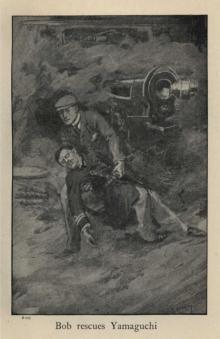 Kobo: A Story of the Russo-Japanese War
Kobo: A Story of the Russo-Japanese War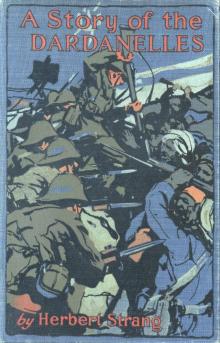 Frank Forester: A Story of the Dardanelles
Frank Forester: A Story of the Dardanelles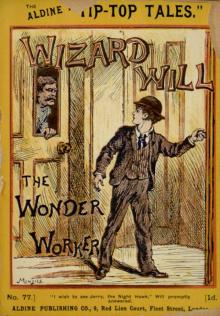 Wizard Will, the Wonder Worker
Wizard Will, the Wonder Worker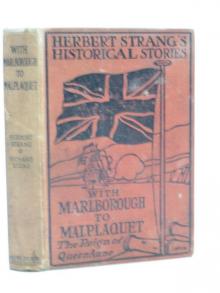 With Marlborough to Malplaquet: A Story of the Reign of Queen Anne
With Marlborough to Malplaquet: A Story of the Reign of Queen Anne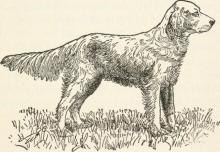 The Dogs of Boytown
The Dogs of Boytown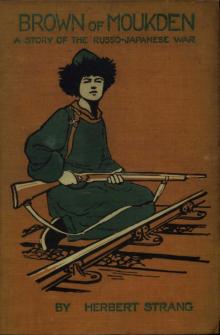 Brown of Moukden: A Story of the Russo-Japanese War
Brown of Moukden: A Story of the Russo-Japanese War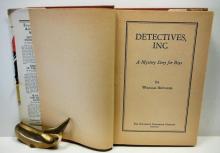 Detectives, Inc.: A Mystery Story for Boys
Detectives, Inc.: A Mystery Story for Boys Bright Ideas: A Record of Invention and Misinvention
Bright Ideas: A Record of Invention and Misinvention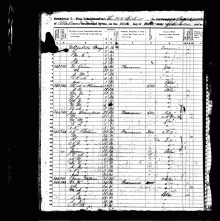 Lost in the Cañon
Lost in the Cañon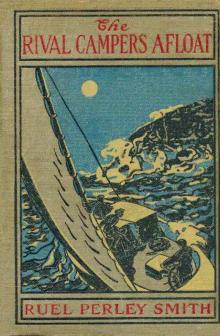 The Rival Campers Afloat; or, The Prize Yacht Viking
The Rival Campers Afloat; or, The Prize Yacht Viking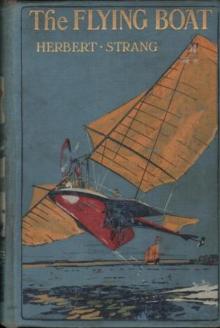 The Flying Boat: A Story of Adventure and Misadventure
The Flying Boat: A Story of Adventure and Misadventure The Flying Reporter
The Flying Reporter Jack Hardy: A Story of English Smugglers in the Days of Napoleon
Jack Hardy: A Story of English Smugglers in the Days of Napoleon No Man's Island
No Man's Island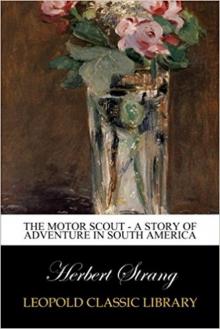 The Motor Scout: A Story of Adventure in South America
The Motor Scout: A Story of Adventure in South America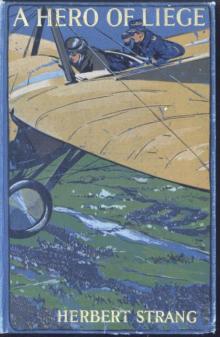 A Hero of Liége: A Story of the Great War
A Hero of Liége: A Story of the Great War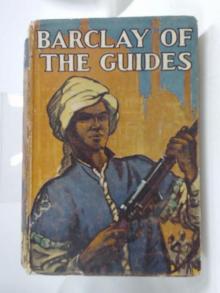 Barclay of the Guides
Barclay of the Guides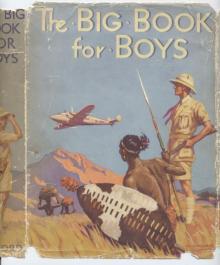 Carry On! A Story of the Fight for Bagdad
Carry On! A Story of the Fight for Bagdad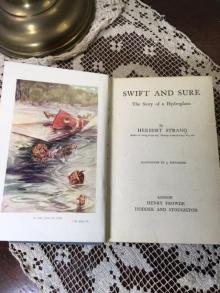 Swift and Sure: The Story of a Hydroplane
Swift and Sure: The Story of a Hydroplane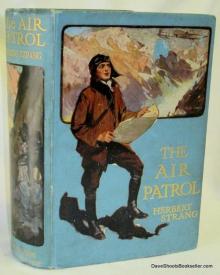 The Air Patrol: A Story of the North-west Frontier
The Air Patrol: A Story of the North-west Frontier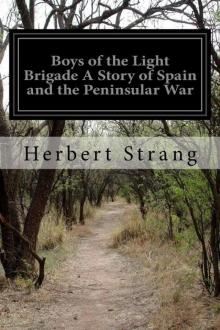 Boys of the Light Brigade: A Story of Spain and the Peninsular War
Boys of the Light Brigade: A Story of Spain and the Peninsular War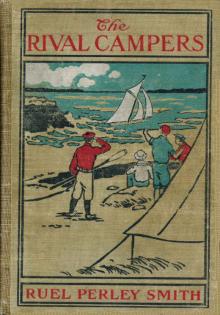 The Rival Campers; Or, The Adventures of Henry Burns
The Rival Campers; Or, The Adventures of Henry Burns Palm Tree Island
Palm Tree Island The Friends; or, The Triumph of Innocence over False Charges
The Friends; or, The Triumph of Innocence over False Charges Maggie's Wish
Maggie's Wish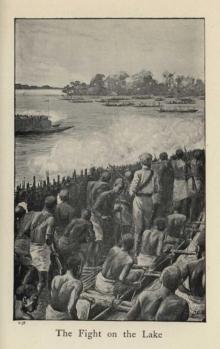 Tom Burnaby: A Story of Uganda and the Great Congo Forest
Tom Burnaby: A Story of Uganda and the Great Congo Forest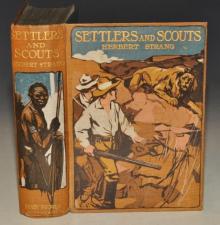 Settlers and Scouts: A Tale of the African Highlands
Settlers and Scouts: A Tale of the African Highlands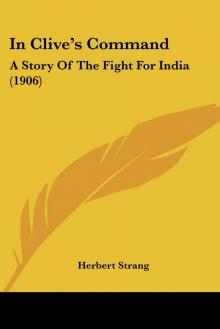 In Clive's Command: A Story of the Fight for India
In Clive's Command: A Story of the Fight for India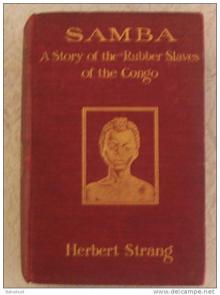 Samba: A Story of the Rubber Slaves of the Congo
Samba: A Story of the Rubber Slaves of the Congo The Auto Boys' Quest
The Auto Boys' Quest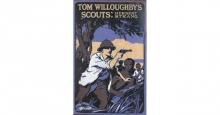 Tom Willoughby's Scouts: A Story of the War in German East Africa
Tom Willoughby's Scouts: A Story of the War in German East Africa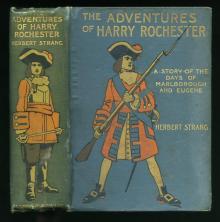 The Adventures of Harry Rochester: A Tale of the Days of Marlborough and Eugene
The Adventures of Harry Rochester: A Tale of the Days of Marlborough and Eugene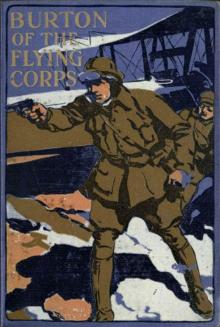 Fighting with French: A Tale of the New Army
Fighting with French: A Tale of the New Army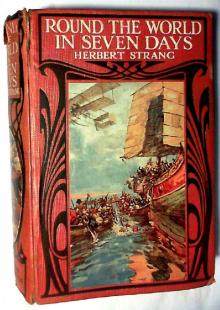 Round the World in Seven Days
Round the World in Seven Days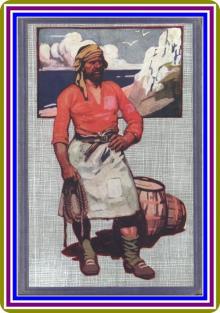 The Adventures of Dick Trevanion: A Story of Eighteen Hundred and Four
The Adventures of Dick Trevanion: A Story of Eighteen Hundred and Four